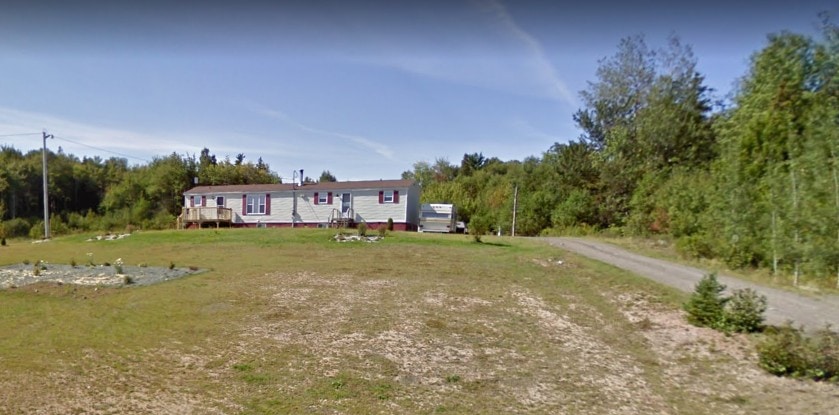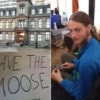
KJIPUKTUK (Halifax) – There’s a giant elephant in a courtroom in Port Hawkesbury Nova Scotia, and the elephant’s name is race and race is being avoided.
I believe the racism that Lionel Desmond endured in the Canadian Armed Forces, PTSD and PTSD2 played a role in his murder suicide in 2017.
As you are aware, in 2017, Lionel Desmond, a young African Nova Scotian from the small community of Lincolnville but residing in the Borden family home in Upper Big Tracadie shot and killed his mother Brenda, 52, his wife Shanna, 31, and their 10-year-old daughter Aaliyah. Lionel was a member of the Canadian Armed Forces and served in Afghanistan in 2007 with the 2nd battalion Royal Canadian Regiment’s India Company. That tour of duty was said to be the bloodiest of the Canadian Military’s combat mission with many casualties as a result of the gruesome guerrilla campaign of the Taliban.
In Lionel Desmond’s case racism has emerged as a parallel narrative in the discussion over PTSD. Many family members, friends and others who have served in the CAF believe he also suffered from Post Traumatic Slavery Disorder (PTSD2).
Post Traumatic Slave Syndrome is the legacy of enduring injury and pain activated and exacerbated by continued incidents of racism and the resulting trauma. In February 2021, only one mental health professional mentioned that Lionel has shared that he was subjected to racism while a member of the CAF. Since 2017, I have personally spoken with at least 17 present and past members of the CAF, who all say that they also experienced racism in the CAF, and that there is no doubt in their minds that Lionel was also a victim of racism.
As most are aware, Post Traumatic Stress Disorder (PTSD) is a mental health condition that is most often triggered by a terrifying event — either experiencing it or witnessing it. Symptoms may include flashbacks, nightmares, panic attacks, thought of suicide and severe anxiety, as well as uncontrollable thoughts about the event itself.
Most individuals suffering from PTSD may have difficulty adjusting and coping, but over time and with good self-care, treatment and mental health care many will recover. Yet symptoms can become worse and last for years thus interfering with activities of daily living and therefore affect one’s quality of life. This is why immediate mental health treatment and services are so important. The question then becomes, “did Lionel receive quality mental health care?” I strongly believe the answer is” No.”
We must remember, mental health illnesses do not necessarily show on the outside of the individual like many other medical conditions.
Regardless, when one goes overseas to fight battles on behalf of Canada with the Canadian Armed Forces (CAF), they should not come back to Canada and Nova Scotia to fight subsequent battles for justice and proper medical treatment or access to treatment.
I guess we must leave judgment up to this failed mental health care system in Canada and those called experts in Post Traumatic Stress Disorder (PTSD) and African Canadian Experts in PTSD2. Equally, let’s try to get our minds around what Lionel might have gone through in Afghanistan and within the Canadian Armed Forces (CAF).
The Desmond Inquiry and Canadians must remember that when African Nova Scotians are victims of racism it causes vicarious trauma and therefore these acts negatively affect the African Nova Scotian community as a whole. We recognize that all anti-Black racism and hate impact the African Nova Scotian community as a whole and individuals on a daily basis.
Being exposed to hate and anti-Black racism is stressful and disturbing and can leave one feeling helpless and emotionally shaken, one most often becomes traumatized.
Most times physical trauma resurrects psychological trauma that can leave many struggling with upsetting emotions, memories, and anxiety that is hard to rid oneself of. This coupled with historical anti-Black racism and hate and many are left feeling numb, disconnected, and unable to trust other people. This is especially the case for those charged with the responsibility to serve and protect.
When racialized physical or mental violence is perpetrated on a member or members of the African Nova Scotian community, it can take a long time to process the pain and to feel somewhat safe again. It is much like someone breaking into one’s home, there is the feeling of being violated and the frustration, hurt and awareness causes the homeowner to forever be suspicious.
Whether psychological trauma happened yesterday or years ago, it can continue to affect one’s life, thoughts and reactions.
Case in point, cousin Lionel Desmond. Any racist bullying, racial taunts and slights in any workplace can mentally scare, but in confined quarters it is compounded.
Acts of racism and hate do adversely affect mental health. It does not take a genius, although the research is available, to appreciate that racism and hate experiences induce physiological and psychological trauma that leads to adverse changes in mental health. This leads to unfavorable self-evaluations and self-doubt that affects one’s psychological well-being.
When any African Nova Scotian is forced without recourse to internalize the racist and hateful acts that are perpetrated against us, when sustained for a period of time this internalization can lead to physical and mental problems, even disease.
This may be why there are increases in the number of African Nova Scotian diagnosed with hypertension, heart disease and cancer, etc.
In the African Nova Scotian community, after facing anti-Black racism and hate trauma, individuals and the community try to move on and we have been taught to rise above it. However, the effects of this kind of trauma run deep and do not just go away.
Copying with racial trauma or a terrorism disaster can affect many although they have not directly been involved and this presents many challenges. Although we might not have been in New Zealand, New York or Quebec when acts of terrorism were heaped on an unsuspecting public, equally we might not have been in Ethiopia when a plane went down killing all passengers and crew or one of the many school shootings in the United States. However, many will still be affected. Viewing and or knowing about these incidents can most times produce traumatic stress all on its own.
Some, I am sure, believe one incident of racism and hate may be given too much attention and importance, however closer observation reveals a life time of acts of racism and hate that accumulate and therefore this festering physical and psychological wound compounds the effects on an individual and the African Nova Scotian community.
Do not take my word for it.
“Racial trauma repeated over time and the individual and or individuals enduring these hatred acts can develop reduced self-esteem and they can internalize the hatred,” according to the American Psychiatric Association.
Similarly, research shows race-based trauma may result in Post-Traumatic Stress Disorder (PTSD). Where these acts cannot be predicted when they are perpetrated it leaves victims anxious and hyper-vigilant and often depression results based on feelings of powerlessness to change the system that supports racism and hatred based on privilege, power and control, and profit.
See also: Raymond Sheppard: The role of racism in the Lionel Desmond case
Check out our new community calendar!
With a special thanks to our generous donors who make publication of the Nova Scotia Advocate possible.
Subscribe to the Nova Scotia Advocate weekly digest and never miss an article again. It’s free!



